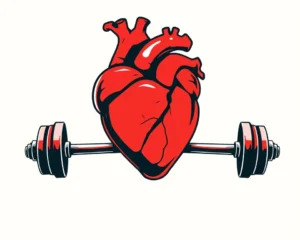It’s a common misconception that being thin automatically equates to being healthy. While society often celebrates thinness, health experts are increasingly emphasizing that true well-being is far more complex than just a number on the scale. This article explores why being thin doesn’t guarantee good health and what factors truly contribute to a healthy lifestyle.
The Myth of Thinness Equals Health
For many years, there has been a societal push towards thinness as the ideal body type, often fueled by diet culture. However, the assumption that thin individuals are automatically healthier is misleading. Being thin can sometimes mask underlying health issues, just as being overweight does not inherently mean someone is unhealthy.
What Does “Healthy” Really Mean?
The World Health Organization (WHO) defines health as “a state of complete physical, mental, and social well-being and not merely the absence of disease or infirmity”. This definition highlights that health is multi-faceted, and it encompasses much more than just physical appearance or weight. A healthy person adapts well to changes and uses resources to maintain balance in their physical, mental, social and spiritual health.
Body Composition vs. Body Weight
One of the most critical concepts in understanding health is the difference between body weight and body composition. Body weight is simply the total mass of your body, while body composition refers to what makes up that weight: muscle, bone, water, and fat. Someone can be thin but have a high percentage of body fat and a low percentage of muscle mass, often referred to as being “skinny fat”. This is where the number on the scale becomes less relevant than the ratio of muscle to fat. A person can weigh more than someone else and look leaner because muscle is denser than fat.
Health Risks Associated with Being Underweight
Just as being overweight carries health risks, being underweight can also lead to numerous complications. These risks include:
Physical Health Complications
- Malnutrition and Vitamin Deficiencies: Being underweight can often indicate that a person is not consuming enough calories or essential nutrients, leading to deficiencies and fatigue. This also means that they are not getting enough energy from their diet, which can affect their ability to fight off infections.
- Osteoporosis: Underweight individuals, particularly women, are at a higher risk of developing osteoporosis, a condition that causes bones to become weak and brittle.
- Weakened Immune System: Not getting enough nutrients can impair the body’s ability to fight off infections, making individuals more prone to illnesses and slower to recover.
- Anemia: Low blood counts, or anemia, is common in underweight people and can cause dizziness, headaches, and chronic fatigue.
- Heart Problems: Being underweight can put a strain on the heart. Research suggests that, at times, being underweight can have more immediate adverse effects on the heart than being overweight.
- Skin, Hair, and Teeth Problems: Poor nutrition can manifest in physical symptoms such as thinning skin, hair loss, dry skin, and poor dental health.
- Hypothermia: Underweight individuals may be more susceptible to hypothermia due to a lack of body fat to insulate them.
- Delayed Healing: Those who are underweight may find it takes longer for wounds or surgery to heal.
Reproductive Health
- Irregular or Absent Periods: Underweight women may experience irregular menstrual cycles or complete cessation of menstruation which can lead to infertility.
- Pregnancy Complications: Being underweight can make it harder to conceive and increase the risk of premature birth.
Developmental Issues
- Failure to Thrive: In children and teenagers, being underweight can hinder proper growth and development. Not getting enough calories during crucial developmental years can lead to long-term health issues.
Mental Health
While not a direct physical ailment, the societal pressure and focus on thinness can contribute to mental health issues. People who internalize the “thin ideal” are at an increased risk of developing eating disorders, irrespective of body weight.
Mortality Risks
Studies have shown that underweight adults have a higher risk of death compared to those with a “normal” BMI. This risk can even be higher than for those considered obese.
What Really Determines Health?
Instead of focusing solely on weight, health professionals emphasize the importance of several factors that contribute to overall well-being.
Healthy Eating Habits
- Balanced Diet: A healthy diet includes plenty of fruits, vegetables, whole grains, lean proteins, and healthy fats.
- Regular Meals: Avoid skipping meals, and eat at regular intervals. This helps regulate metabolism.
- Hydration: Drinking enough water is crucial for overall health and can help with feeling full, thus preventing overeating.
- Healthy Fats: Incorporate sources of healthy fats, such as those found in fish, nuts, and avocados, to support cardiovascular health.
- Limit Processed Foods and Sugars: Focus on whole, unprocessed foods to maximize nutrient intake and minimize empty calories.
Regular Physical Activity
- Consistent Movement: Engage in regular physical activity, even if it is not intense workouts. Aim for at least 150 minutes of moderate-intensity exercise per week.
- Variety: Incorporate different types of activities to improve overall fitness, including strength training, cardiovascular exercise, and flexibility work.
- Morning Exercise: Exercising in the morning can boost metabolism and encourage consistency.
Stress Management
- Effective Coping Mechanisms: Find healthy ways to manage stress, as stress can impact eating habits and overall health.
- Prioritize Sleep: Getting enough sleep is vital for maintaining a healthy weight and reducing stress-related cravings. Aim for 7-9 hours of quality sleep each night.
Mental and Emotional Well-being
- Positive Outlook: Maintain a positive attitude and be patient with yourself.
- Self-Advocacy: Practice self-advocacy, like asking for help when needed.
The Importance of Body Composition
Body composition is a more accurate measure of health than weight alone. It helps determine the proportion of fat mass to lean muscle mass.
- Visceral Fat: This is the fat that surrounds the organs in the abdomen. Too much visceral fat can lead to health problems, regardless of overall body weight.
- Muscle Mass: Higher muscle mass is associated with lower risks of cardiovascular disease and other health issues.
How to Measure Body Composition
Body composition can be measured through methods such as:
- Bioelectrical Impedance Analysis (BIA): This method uses weak electrical currents to measure the resistance of body tissues and can be done with specific scales.
- Waist Circumference Measurement: A large waist circumference can indicate a higher level of internal fat deposits, increasing the risk of heart disease and stroke. Men should aim for under 94cm (37 inches) and women under 80cm (31.5 inches)
Moving Beyond the “Thin Ideal”
It’s crucial to shift away from the societal obsession with thinness and adopt a more holistic approach to health. Health can exist in every size, with the focus on how well you manage stress and what you eat. The “Health at Every Size” (HAES) movement promotes this concept and challenges weight bias.
Conclusion
Being thin does not automatically equal being healthy. True health encompasses physical, mental, and social well-being. It is about having healthy habits and good body composition, not just a specific weight. It’s vital to focus on balanced nutrition, regular physical activity, effective stress management, and maintaining a healthy mindset, all while moving beyond the notion that thinness is the only way to be healthy. If you have concerns about your health or weight, consult a healthcare professional for personalized advice.







